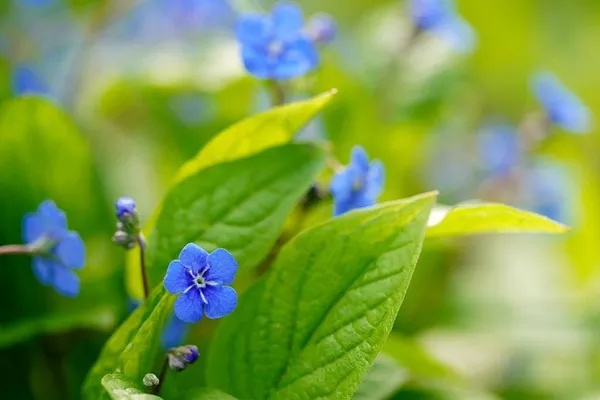Clover flowers, often overlooked in favor of more conventional herbs and wildflowers, possess a remarkable range of uses and benefits. Whether you encounter them in your garden, a meadow, or a nearby field, clover flowers can play a significant role in various aspects of our lives. In this article, we will explore the versatile world of clover flowers, examining their culinary, medicinal, and ecological applications.
Culinary Delights
Edible Flowers
Clover flowers are not only visually appealing but are also edible, adding a delightful touch to various culinary creations. These dainty, sweet flowers make excellent garnishes for salads, soups, and desserts. Their mild, earthy flavor can enhance the visual and sensory appeal of your dishes.
Tea Infusions
Clover flowers are commonly used to prepare herbal teas. To make clover flower tea, simply collect fresh blossoms and let them air dry. Once dried, you can use them individually or in combination with other herbs to make a soothing and aromatic tea. The tea is not only pleasant to the palate but also carries potential health benefits.
Medicinal Marvels
Natural Healing
Clover flowers have a long history of traditional medicinal use. They are believed to possess various healing properties. Some of the potential health benefits associated with clover flowers include:
a. Digestive Aid: Clover flower tea can help soothe an upset stomach and alleviate digestive discomfort.
b. Respiratory Relief: Clover flower infusions may assist in relieving coughs and mild respiratory issues.
c. Skin Soothing: Clover flowers are used topically in salves and creams to alleviate skin irritations, such as rashes and minor burns.
Potential Antioxidant Power
Research indicates that clover flowers contain antioxidants, such as flavonoids and phenolic compounds. Antioxidants help protect cells from oxidative stress, reducing the risk of chronic diseases and promoting overall well-being.
Hormonal Balance
Red clover (Trifolium pratense) in particular, is known for its phytoestrogen content. Phytoestrogens are plant compounds that can help balance hormone levels in the body. Some women have used red clover supplements to alleviate menopausal symptoms, such as hot flashes and mood swings, although it is essential to consult with a healthcare professional before incorporating such supplements into your routine.
Ecological Wonders
Soil Improvement
Clover flowers, particularly white clover (Trifolium repens), have a significant ecological role. They are often used as cover crops, thanks to their nitrogen-fixing ability. These plants form a symbiotic relationship with nitrogen-fixing bacteria in their roots, enriching the soil with this essential nutrient. Farmers and gardeners often use clover flowers to improve soil fertility and reduce the need for synthetic fertilizers.
Pollinator Paradise
Clover flowers are a valuable resource for pollinators, including bees and butterflies. The nectar-rich blooms attract these essential insects, aiding in pollination and promoting biodiversity. By planting clover flowers in your garden or as part of a wildflower meadow, you contribute to the conservation of these vital species.
Erosion Control
The dense, fibrous root system of clover plants helps stabilize soil, preventing erosion. In areas where erosion is a concern, planting clover can be an eco-friendly and effective solution. The plants’ deep roots bind the soil, reducing the risk of topsoil loss.
Livestock Forage
Clover flowers also have significance in the agricultural industry. They serve as a valuable source of forage for livestock. Farmers often cultivate clover as a nutritious grazing option for cattle, sheep, and other animals. Clover provides a balanced diet, with high protein content, which benefits both the livestock and the soil.
Cultivating Clover Flowers
Now that we have explored the myriad uses of clover flowers, let’s consider how to cultivate and care for these versatile plants.
Choosing the Right Variety
Various species of clover are available, each with its unique characteristics. For culinary purposes and general ornamental use, white clover (Trifolium repens) and red clover (Trifolium pratense) are popular choices. For soil improvement and wildlife habitat, white clover is often preferred, as it is a low-growing perennial with excellent ground cover.
Planting and Maintenance
Clover flowers are relatively easy to grow, making them an excellent choice for both novice and experienced gardeners. Here’s how to get started:
a. Location: Clover prefers well-drained soil and partial to full sun. Choose a location that receives at least 4-6 hours of sunlight per day.
b. Planting: Clover can be sown from seeds or transplanted as seedlings. For sowing, follow the recommended seeding rate for your chosen variety. Water the seeds well and keep the soil consistently moist during the germination period.
c. Maintenance: Clover is relatively low-maintenance, but regular watering may be required during dry spells. Mow the clover plants periodically to keep them from becoming too tall and leggy.
d. Fertilization: Clover does not require heavy fertilization, thanks to its nitrogen-fixing abilities. However, you can provide a light application of organic fertilizer in the spring to encourage healthy growth.
e. Pest and Disease Management: Clover is relatively pest and disease-resistant. However, you may need to watch out for common garden pests like aphids and white clover mites.
Conclusion
Clover flowers are a remarkable and versatile addition to our lives, with their culinary, medicinal, and ecological applications. From enhancing the flavor of your dishes to offering potential health benefits, clover flowers are a hidden gem in the world of edible and medicinal plants. Moreover, their role in enriching the soil, promoting biodiversity, and preventing erosion cannot be understated. By cultivating and appreciating clover flowers, we can harness their many benefits while contributing to a healthier, more sustainable environment. So, the next time you encounter a field of clover, take a moment to appreciate the multifaceted beauty of these humble flowers and consider how you might incorporate them into your life.


